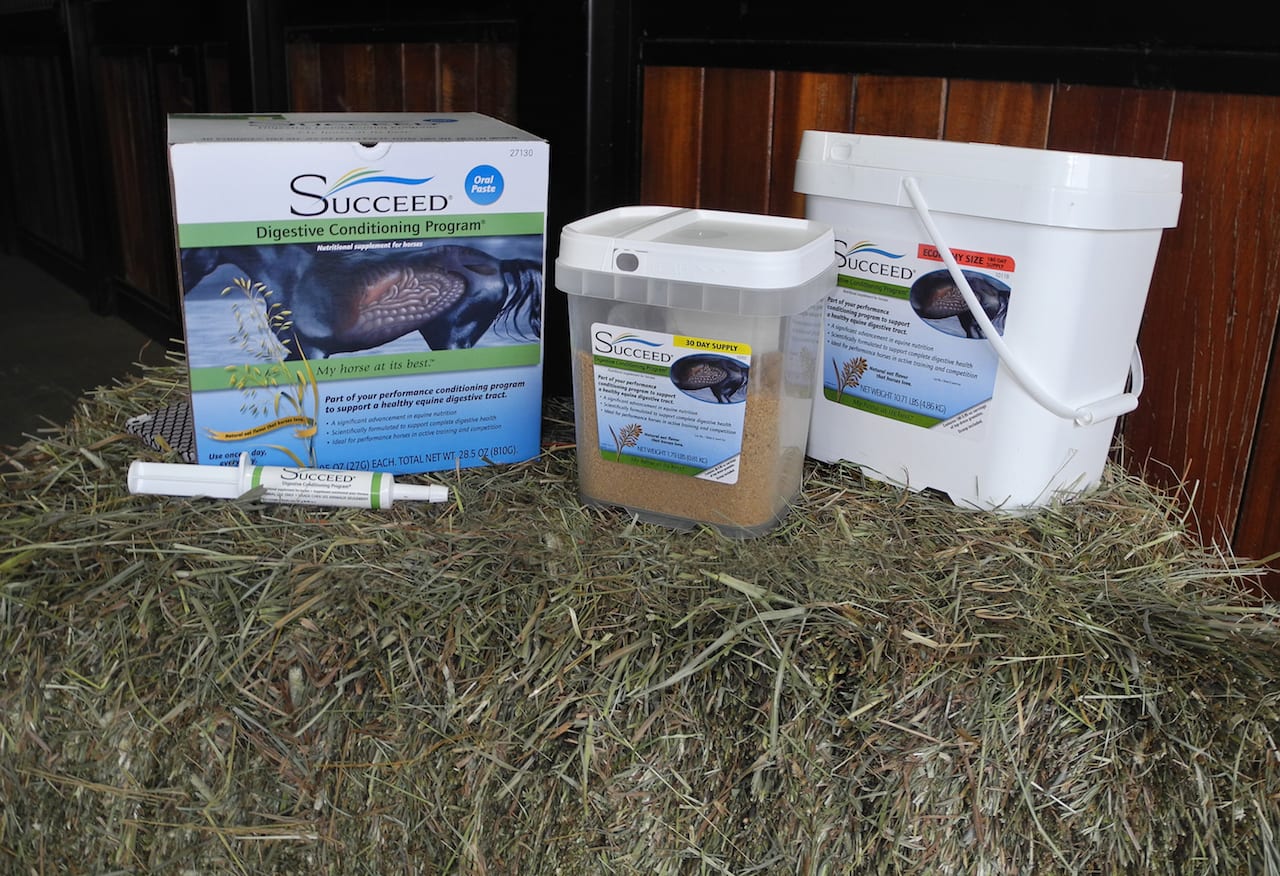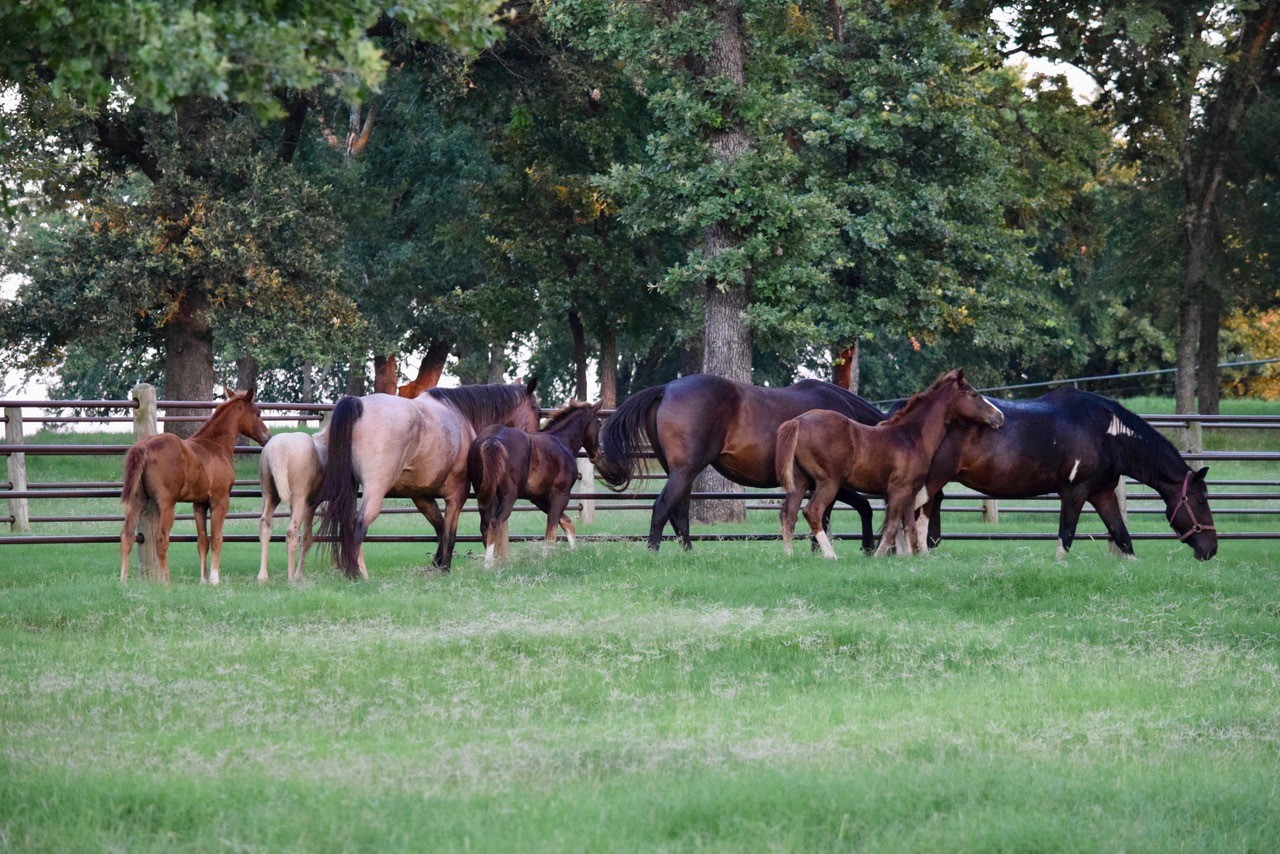If you’ve read any of the other posts in this six-part series about why hay is so important for horses, you’ll know that hay plays a key role in your horse’s diet — and is possibly the most important thing you could be feeding.
Serious horse people tend to spend whatever it takes to achieve a healthy horse, but as is the case with vegetables in the human diet, sometimes it’s the humblest things that make the most difference.
Why Feeding Hay is Important for Digestive Health
Over the course of this series, we’ve talked about:
- Different types of hay, and the associated pros and cons
- How to choose high-quality hay
- How to store hay properly
- How to feed hay
We’ve also talked about why it’s important to make forage the dominant ingredient in your horse’s diet. Among many reasons, it’s convenient, generally available year round, and (most importantly) it’s vital to keeping your horse’s digestive system functioning properly. Every step of the cycle plays a role in good digestive health, from the moment a horse bites and chews the hay in front of him, to the point at which it exits his body.
How to Take the Forage-First Approach — and Why
We talk a lot about “feeding forage first” — that is, making forage the main ingredient in your horse’s diet. As this series has shown, there are numerous reasons for doing so. But here’s something you may not have thought much about: feeding forage first allows you to feed other grain-based foods second — or not at all.
Too many horse owners rely on carb-laden sweet feeds or grains to provide the calories their horses need. Sure, it provides energy — but when fed in one or two dumps per day, this kind of high-starch feed can actually harm your horse by traveling through the digestive system too quickly, only to land in the hindgut undigested. When this happens, the microbial fermentation process in the cecum (hindgut) produces lactic acid which has a cascading effect on digestive health and can impact overall wellness.
Additionally, relying on these two big feeds per day — and not much else — means that the stomach is empty much of the time, leaving it vulnerable to the digestive acids constantly being secreted into the stomach. Because forage takes so much longer to digest (and consume), along with saliva produced by constant chewing, it works to naturally buffer stomach acids— all the more reason to feed hay, rather than grain.
Feed Forage and SUCCEED for Better Nutrition
Fresh grass naturally contains the carbohydrates, protein and minerals a horse needs. Dried forage products, such as hay, chaff and beet pulp also provide many important nutrients for health as well as up to 70% of a horse’s energy requirements. When your horse can extract the full nutrition available from its hay, you may find less of a need for additional processed feed or ration balancers.
SUCCEED is specially formulated with a blend of natural ingredients to support the total health of the entire equine digestive tract. This helps horses get more of the nutrition available from their feed. Here’s how these natural ingredients can contribute to overall nutrition and digestive wellness:
- Oat oil in SUCCEED is rich in polar lipids (vegetable fat molecules) that help support optimal nutrient absorption.
- Oat flour in SUCCEED is rich in beta glucan, a soluble fiber that supports a healthy immune system, aids nutrient absorption and helps ensure starch is properly digested before reaching the hindgut.
- Yeast products rich in beta glucan and Mannan oligosaccharide (MOS) support a healthy hindgut balance, natural immunity, and encourage the growth of intestinal villi responsible for nutrient absorption.
- L-Glutamine is an amino acid that supports the immune cells in the lining of the gut and provides fuel to muscles.
- L-Threonine is an amino acid that supports the production of mucin, which lubricates the GI tract lining.
When properly formulated together (as they are in SUCCEED), these ingredients help encourage and support a healthy digestive system. When fed appropriately, this SUCCEED + hay feeding program fulfills the majority of the nutritional needs for many horses. Keep in mind it is critical to have hay tested, and work with your veterinarian or a nutritionist to ensure your horse’s feed program meets all its dietary requirements.
Those horses in heavy work or with excessive energy requirements may need a judicial supplement of beet pulp or higher-calorie, lower-starch feed, but with a forage-first, SUCCEED-second approach, you’re off to a great start for overall wellness.
Interested in trying SUCCEED with your horse? First-time users can take the SUCCEED Challenge to try it risk free for 60 days*. Get results, or your money back.
*U.S. residents only. If you live outside the U.S., talk to your veterinarian to purchase.




